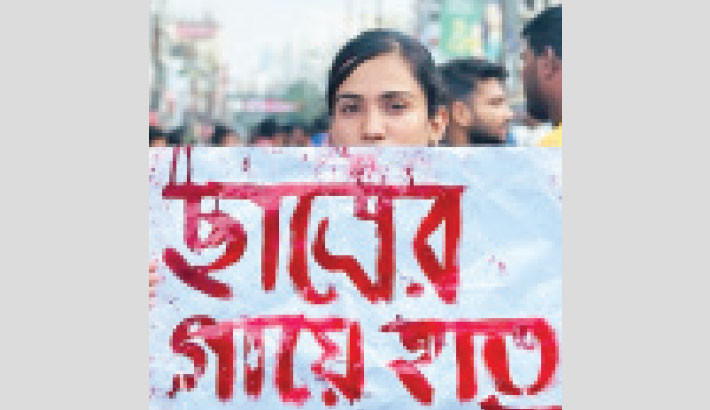
From public universities to private campuses, from madrasah students to rickshaw-pullers, people from all walks of life stood shoulder to shoulder, forging the historic July August movement in defiance of violence and injustice. These are the voices of those who were there – who marched, who bled, who carried the fallen and who refused to stay silent. Not just stories of protest, but of unity, sacrifice and unshaken hope for a different future.
Mayisha Rahman Sparsha
Student, BBA, Independent University, Bangladesh (IUB)
In early July, I wasn’t fully aware of what was unfolding in the country due to some personal reasons. I only heard that students were protesting against the quota system that created inequality. Many students, like me, who were about to start their careers, had taken to the streets against this discrimination.
Then on 15 July, I saw with my own eyes how brutally my brothers and sisters were beaten inside Dhaka University. It broke my heart. The very next day, 16 July, was my birthday. I decided I wouldn’t celebrate it in the usual way. Along with my friends, I chose to stand up against the injustice happening on the streets.
From that day, we joined the movement. On the same day, I saw the video of Abu Sayed being killed in Rangpur. That moment sparked a revolutionary fire inside me.
After that, the police raided our house several times. My mother received threats from unknown numbers, warning her not to let me go outside or we would face serious consequences. Whenever I went out, my phone was checked.
During the internet shutdown, I couldn’t go out or stay in touch with others. So I began drawing what I saw and felt — portraits of Abu Sayed, Mir Mugdho, and many other moments from the movement filled the pages of my sketchbook.
The biggest thing I learned from the July uprising is that during that time, all political parties and students — from both public and private universities — stood united against the fascist rule of Hasina. But now, me said something that stayed with me: “Look, brother, I’m a hujur in a panjabi. Beside me is a girl who smokes. although student unity is still visible, the political parties seem to have lost that unity.
If we truly want to build a new Bangladesh, unity is the first thing we need.
And if someday I have to stand up for the country again, I will. If I can stand up for myself, why wouldn’t I stand for others?

